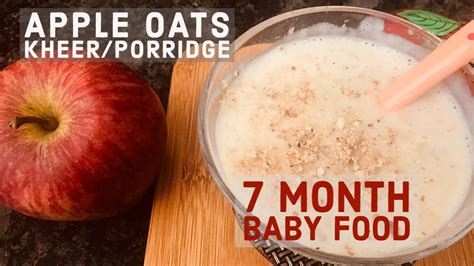Fatty Liver: A Growing Concern
Fatty liver disease is a prevalent disorder characterized by excessive fat accumulation in the liver, affecting millions of individuals worldwide. It encompasses a spectrum of conditions, ranging from non-alcoholic fatty liver disease (NAFLD) to more severe forms like non-alcoholic steatohepatitis (NASH) and cirrhosis.

Is Carrot Juice Good for Fatty Liver?
The answer to this question is not a straightforward yes or no. While carrots possess numerous health benefits due to their rich nutrient content, including antioxidants, vitamins, and fiber, their impact on fatty liver is a subject of ongoing research.
Potential Benefits of Carrot Juice for Fatty Liver
Some studies have indicated that carrot juice may provide certain benefits for individuals with fatty liver:
-
Antioxidant Effects: Carrots are an excellent source of antioxidants, such as beta-carotene and lutein. These compounds help neutralize free radicals, which can damage liver cells and contribute to inflammation.
-
Liver-Protecting Compounds: Carrot juice contains a unique compound called falcarinol, which has been shown to protect against liver damage in animal studies.
-
Anti-Inflammatory Properties: The antioxidants in carrot juice may reduce inflammation in the liver, a key factor in the progression of fatty liver disease.
Limitations and Cautions
Despite these potential benefits, it’s important to note that carrot juice alone is not a miracle cure for fatty liver. The following limitations and cautions should be considered:
-
Limited Scientific Evidence: While some studies suggest potential benefits, larger and more robust clinical trials are needed to fully establish the impact of carrot juice on fatty liver in humans.
-
Sugar Content: Carrot juice contains natural sugars, which, if consumed in excess, can contribute to weight gain and metabolic dysregulation, potentially worsening fatty liver.
-
Interaction with Medications: Carrot juice may interact with certain medications, such as blood thinners. It’s essential to consult with a healthcare professional before consuming large amounts of carrot juice if taking any medications.
Recommended Intake
The optimal intake of carrot juice for individuals with fatty liver is unknown. However, it’s generally recommended to consume carrot juice in moderation as part of a balanced diet. A reasonable daily intake could be one to two glasses.
Alternative Natural Remedies for Fatty Liver
In addition to carrot juice, other natural remedies may support liver health and improve fatty liver:
-
Green Tea Extract: Green tea contains powerful antioxidants called catechins, which have been shown to reduce inflammation and protect against liver damage.
-
Turmeric: Curcumin, the active compound in turmeric, possesses anti-inflammatory and liver-protective properties.
-
Milk Thistle Extract: Milk thistle extract is a traditional herbal remedy used to support liver health and reduce inflammation.
Diet and Lifestyle Recommendations
Managing fatty liver involves adopting a healthy diet and lifestyle that supports liver function and overall well-being:
-
Maintain a Healthy Weight: Excess weight, particularly around the abdomen, can contribute to fatty liver. Aim for a healthy weight loss of 1-2 pounds per week through a balanced diet and regular exercise.
-
Adopt a Mediterranean-Style Diet: This diet, rich in fruits, vegetables, whole grains, and healthy fats, has been shown to improve liver health.
-
Limit Sugar and Processed Foods: Avoid sugary drinks, processed foods, and refined carbohydrates, which can contribute to weight gain and insulin resistance, both risk factors for fatty liver.
-
Exercise Regularly: Regular physical activity helps burn excess calories, improve insulin sensitivity, and reduce inflammation throughout the body, including the liver. Aim for at least 150 minutes of moderate-intensity exercise per week.
-
Avoid Alcohol: Alcohol consumption can significantly damage the liver and contribute to fatty liver disease. Avoid or limit alcohol intake to protect your liver.
Conclusion
While carrot juice may provide certain benefits for individuals with fatty liver, it’s important to approach its consumption with caution and consider the overall context of a healthy diet and lifestyle. Further research is needed to fully understand the impact of carrot juice on fatty liver in humans. In the meantime, adopting a comprehensive approach that incorporates a balanced diet, regular exercise, and other natural remedies can support liver health and improve overall well-being.
Tables
Table 1: Nutrient Content of Carrot Juice (1 cup)
| Nutrient | Amount |
|---|---|
| Calories | 118 |
| Carbohydrates | 25g |
| Protein | 2g |
| Fat | 1g |
| Fiber | 4g |
| Vitamin A | 400% DV |
| Vitamin C | 20% DV |
| Potassium | 500mg |
Table 2: Potential Benefits of Carrot Juice for Fatty Liver
| Benefit | Evidence |
|---|---|
| Antioxidant Effects | Studies have shown that carrot juice contains antioxidants that can neutralize free radicals and protect liver cells. |
| Liver-Protecting Compounds | Carrot juice contains a unique compound called falcarinol, which has been shown to protect against liver damage in animal studies. |
| Anti-Inflammatory Properties | The antioxidants in carrot juice may reduce inflammation in the liver, a key factor in the progression of fatty liver disease. |
Table 3: Cautions Regarding Carrot Juice for Fatty Liver
| Caution | Explanation |
|---|---|
| Limited Scientific Evidence | While some studies suggest potential benefits, larger and more robust clinical trials are needed to fully establish the impact of carrot juice on fatty liver in humans. |
| Sugar Content | Carrot juice contains natural sugars, which, if consumed in excess, can contribute to weight gain and metabolic dysregulation, potentially worsening fatty liver. |
| Interaction with Medications | Carrot juice may interact with certain medications, such as blood thinners. It’s essential to consult with a healthcare professional before consuming large amounts of carrot juice if taking any medications. |
Table 4: Alternative Natural Remedies for Fatty Liver
| Remedy | Benefits |
|---|---|
| Green Tea Extract | Contains powerful antioxidants called catechins, which have been shown to reduce inflammation and protect against liver damage. |
| Turmeric | Curcumin, the active compound in turmeric, possesses anti-inflammatory and liver-protective properties. |
| Milk Thistle Extract | Traditional herbal remedy used to support liver health and reduce inflammation. |
















